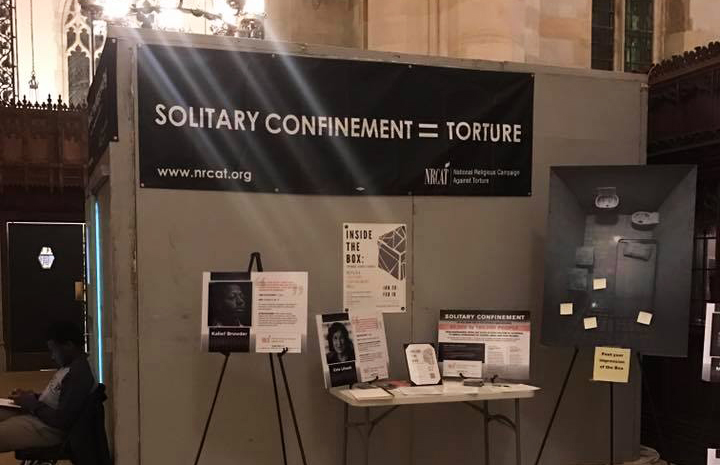
Courtesy of Annie Faye Cheng
In one of several events organized in conjunction with the National Religious Campaign Against Torture, Yale Law School’s Orville H. Schell, Jr. Center for International Human Rights hosted a panel of five distinguished advocates who gathered at the Law School Wednesday night to discuss solitary confinement in Connecticut.
Addressing a crowd of roughly 35 attendees, the speakers expressed their concern over the burgeoning population of prisoners in solitary confinement. Part of the problem they identified lies in the fact that no one knows for sure how many prisoners are isolated on any given day. The official figures range from anywhere between 80,000 to 100,000 prisoners, as most censuses focus only on maximum security prisons. Despite having conditions similar to solitary confinement, other units, such as special management, restricted housing and secure housing, are often disregarded in official figures.
Prisoners in solitary confinement are frequently sequestered in a cell for 22 to 24 hours a day and deprived of human contact for an indefinite period of time. Research has shown that just two weeks in solitary can have lasting effects on inmates, ranging from anxiety and depression to cognitive disturbances and perceptual distortions.
Barbara Fair, executive director of My Brother’s Keeper, an activist organization working to end the practice of solitary confinement, emphasized that this effect was particularly detrimental to youth.
“[Prison administrators] give them antipsychotic medication, which comes with a lot of side effects,” Fair said. “You’ve got to think about putting young people in there, whose brains are still forming and how much damage you can do to them — oftentimes irreparable. They’ll never be the same again.”
David McGuire, executive director of the American Civil Liberties Union of Connecticut, said the legal system reflects a distinct lack of respect for the prisoner’s right to submit complaints. The grievance system is one of the only ways that inmates, both in and outside of solitary confinement, can communicate any life-threatening, mental health or facility negligence issues.
As a lawyer with a history of handling prisoner litigation, McGuire hoped to see an improvement in the treatment and resolution of these grievances since he has been working on the issue. But he said he was disappointed to see that this was not the case.
“We heard from many testimonies that there were grievances that were routinely thrown away or not answered and that is a huge disconnect,” McGuire said. “That lack of communication and mutual respect in hearing someone out on medical needs and things of that nature is really unnerving. … There’s a culture change that needs to happen that you can’t legislate.”
Five Mualimm-ak, another panelist, went on to say that solitary confinement was frowned upon by entities like the United Nations. Mualimm-ak, who founded Incarcerated Nation Corp., a post-incarceration collective that provides services to the incarcerated and previously incarcerated and their families, added that local legislators were in part responsible for a lack of progress.
It is easy to forget about the rights of those who were in jail, considering the many responsibilities of lawmakers, Mualimm-ak said.
Connecticut State Sen. Gary Holder-Winfield, D–New Haven, agreed with Mualimm-ak. Instead of a lack of concern, however, he cited a lack of general understanding among legislators. Having spent time inside the life-sized replica of a solitary confinement cell at the New Haven Free Public Library, he recalled the scandalized reactions of fellow state Senate members when they saw the Facebook Live video a journalist posted of him.
“The reason why it matters to legislators when they see me in a cell is because they know me,” Holder-Winfield said. “They don’t know those people who are in a cell. They don’t necessarily even think of them as people sometimes. We may have a commissioner of correction who doesn’t think they are the ‘worst of the worst’, but certainly, some of my colleagues do.”
Despite this, the panel feels that there will be substantial change to come. As these issues are coming to light, Fair said that the ACLU, along with students at Yale Law School and those with the Yale Undergraduate Prison Project, are working together to get the legal backing necessary to help improve conditions for those in solitary.







